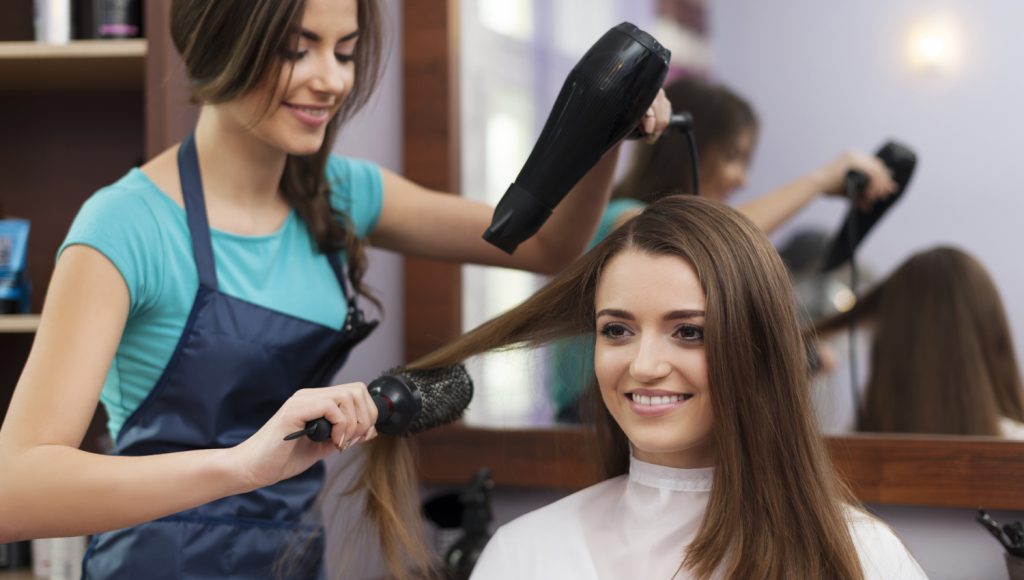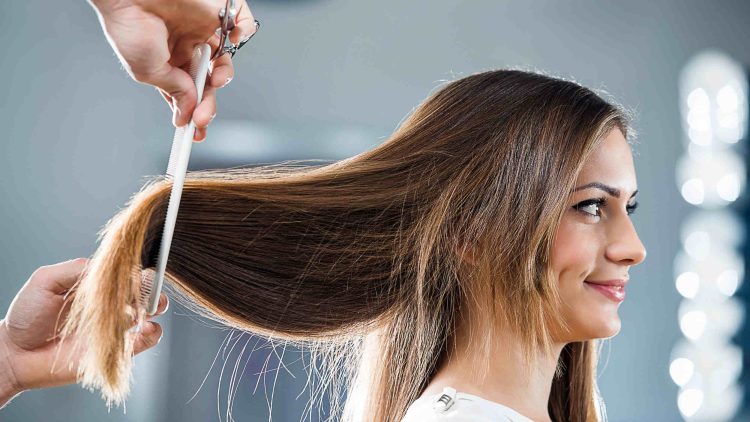Choosing the right shampoo and hair care products is essential for maintaining healthy, shiny, and manageable hair. With the vast array of products available on the market, it can be overwhelming to decide which ones are best for your specific hair type. Just like skincare, hair care is not one-size-fits-all — different hair types require different formulations to address their unique needs.
In this guide, we’ll break down how to choose the right shampoo and hair care products for your hair type, including considerations for different textures, porosities, and concerns such as dryness, oiliness, and damage. By understanding your hair’s specific needs, you can curate a routine that keeps your locks looking and feeling their best.
1. Understanding Your Hair Type
Before selecting the right shampoo and hair care products, it’s crucial to understand your hair type. Hair type is determined by a variety of factors, including texture, thickness, porosity, and oiliness. Here are the main hair characteristics to consider when choosing products:
Hair Texture:
Hair texture refers to the natural pattern or curliness of your hair. It generally falls into four categories:
- Straight Hair: Hair that lacks curl or wave. It can be fine, medium, or thick in density.
- Wavy Hair: Hair that forms gentle waves. It’s typically more prone to frizz than straight hair.
- Curly Hair: Hair with well-defined curls or ringlets. Curly hair tends to be dry and can be more challenging to manage.
- Coily Hair: Extremely tight curls or zig-zag patterns. This texture often requires extra moisture and can be prone to breakage.
Hair Porosity:
Hair porosity refers to how well your hair absorbs and retains moisture. It is determined by the condition of the hair cuticle (the outer layer of the hair shaft).
- Low Porosity: Hair that resists moisture absorption. This hair type often looks shiny but can feel greasy or weighed down.
- Medium Porosity: Hair that absorbs and retains moisture well. This type is usually healthy and manageable.
- High Porosity: Hair that absorbs moisture easily but struggles to retain it, leading to dryness and frizz. This type may be more prone to damage.
Hair Thickness and Density:
- Fine Hair: Thin strands that may look limp or flat. Fine hair can be easily weighed down by heavy products.
- Medium Hair: Strands that are not too thick or thin, providing more volume and texture.
- Thick Hair: Coarse strands with more volume, often requiring heavier products to provide moisture and nourishment.
Scalp Type:
Your scalp type plays a significant role in choosing the right shampoo and conditioner. Your scalp can be:
- Oily: Producing excess sebum, which can lead to greasy hair.
- Dry: Lacking moisture, which may lead to itching or flakiness.
- Sensitive: Prone to irritation or inflammation.
- Normal: Balanced, neither too oily nor too dry.
2. Choosing Shampoo Based on Your Hair Type
Once you understand your hair’s characteristics, you can choose a shampoo that’s formulated to meet its specific needs. Here’s a breakdown of which shampoo to use based on various hair types:
For Straight Hair:
Straight hair can be oily or dry depending on the scalp, and it tends to lack volume. To keep it looking fresh and voluminous:
- Best Shampoos: Lightweight, volumizing, or clarifying shampoos.
- Key Ingredients: Look for ingredients like panthenol (for volume), silicone-free formulas (to prevent buildup), and tea tree oil (for a clean, fresh scalp).
- Avoid: Heavy moisturizing shampoos that could weigh down fine or straight hair.
For Wavy Hair:
Wavy hair can be a mix of both straight and curly hair, often with a tendency to frizz. To keep waves defined and frizz-free, you need a balance of hydration and volume:
- Best Shampoos: Moisturizing shampoos with frizz-control properties.
- Key Ingredients: Argan oil, shea butter, and glycolic acid can help enhance the texture and maintain moisture.
- Avoid: Products that are too heavy or creamy, as they can flatten waves.
For Curly Hair:
Curly hair tends to be drier due to the natural bend in the hair shaft, which prevents moisture from traveling down the strand. Curls need extra hydration and care:
- Best Shampoos: Sulfate-free, hydrating, and nourishing shampoos designed specifically for curls.
- Key Ingredients: Coconut oil, shea butter, glycerin, and flaxseed are great for moisturizing and defining curls.
- Avoid: Shampoos with sulfates and drying alcohols that can strip natural oils from curly hair.
For Coily Hair:
Coily hair is the tightest curl pattern, often requiring deep nourishment and moisture retention. This hair type can be prone to dryness and breakage:
- Best Shampoos: Rich, hydrating shampoos with nourishing oils.
- Key Ingredients: Castor oil, argan oil, and honey are ideal for sealing moisture and preventing frizz.
- Avoid: Clarifying shampoos or shampoos with sulfates, as they can make coily hair dry and brittle.

3. Choosing Conditioner Based on Your Hair Type
Conditioners are crucial for replenishing moisture, detangling, and adding softness to your hair. Here’s how to select a conditioner that works for your hair type:
For Straight Hair:
Straight hair tends to be fine and can easily be weighed down, so you’ll want a conditioner that’s lightweight and won’t make your hair look limp.
- Best Conditioners: Volumizing or lightweight conditioners.
- Key Ingredients: Look for light oils like grapeseed oil or silicone-free formulas that provide moisture without weighing your hair down.
- Avoid: Thick, creamy conditioners that are more suited for thick or curly hair.
For Wavy Hair:
Wavy hair can look flat or frizzy, so you need a conditioner that enhances the natural wave while providing enough moisture to tame frizz:
- Best Conditioners: Moisturizing, smoothing, or frizz-control conditioners.
- Key Ingredients: Argan oil, aloe vera, and keratin help lock in moisture and smooth out the waves.
- Avoid: Conditioners that contain heavy silicones, which can make waves look flat.
For Curly Hair:
Curly hair needs extra moisture and softness to prevent frizz and enhance curl definition. Choose a conditioner that’s rich in nourishing ingredients:
- Best Conditioners: Deep conditioning treatments and rich moisturizing formulas.
- Key Ingredients: Shea butter, coconut oil, and glycerin are excellent for hydrating and defining curls.
- Avoid: Silicones and drying alcohols that can leave curls feeling heavy and weighed down.
For Coily Hair:
Coily hair needs the most hydration and nourishment to prevent dryness and breakage. A thick, rich conditioner is essential to keeping coils soft and bouncy:
- Best Conditioners: Deep moisturizing and strengthening conditioners.
- Key Ingredients: Jojoba oil, honey, and avocado oil will deeply hydrate and add softness.
- Avoid: Conditioners that contain sulfates or proteins that can lead to breakage when used too frequently.
4. Additional Tips for Hair Care Based on Hair Type
Besides shampoo and conditioner, your hair care routine should also include other key products like masks, oils, and leave-in treatments. Here’s how to enhance your routine based on your hair type:
For Dry or Damaged Hair:
- Deep Conditioning Treatments: Use a rich, moisturizing mask or treatment once a week to repair and restore moisture to dry or damaged hair.
- Hair Oils: Oils like argan oil, jojoba oil, or marula oil can be applied to the ends of your hair to seal in moisture and add shine.
For Oily Hair:
- Clarifying Shampoos: Use a clarifying shampoo once a week to remove buildup and excess oil from your scalp.
- Dry Shampoo: Dry shampoo is great for absorbing oil between washes and keeping your hair fresh without overwashing.
For Fine Hair:
- Volumizing Products: Use light, volumizing mousse or sprays to add body and fullness to fine hair.
- Avoid Heavy Creams: Stick to lighter formulas that won’t weigh your hair down.
For Thick Hair:
- Moisturizing Products: Thick hair often requires richer, moisturizing products to tame frizz and provide hydration.
- Leave-in Conditioners: Leave-in conditioners can be great for providing ongoing moisture throughout the day.
Conclusion:
Choosing the right shampoo and hair care products depends on your hair type, texture, porosity, and specific concerns. Understanding your hair’s unique needs will help you select the best products that nourish, protect, and enhance your hair. Whether your hair is fine, curly, thick, or coily, the right combination of shampoo, conditioner, and treatment products can make all the difference in achieving healthy, beautiful hair. Keep in mind that consistency is key to seeing results, so make sure to stick with your hair care routine and adjust products as necessary based on your hair’s evolving needs.












































